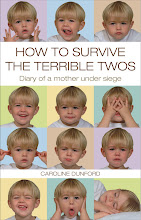A lot of people don't understand copyright. A lot of people think it's outdated. A lot of people abuse it. But love it or hate it as an author you deal with the repercussions of copyright law on a daily basis. And as a consumer we all make choices all the time about how we respect (or don't respect) copyright.
As an author I hold copyright over my works. I've contracted to my publishers to allow them to produce my work for a set period and in return, because I hold the copyright, I'm paid royalties on every sale of my work. Royalties aren't a lot per copy, but they add up and they pay the bills - or more often than not, help pay the bills. Yes, some people do get advances. A few high fliers get a lot, but advances have to 'earn out' ie you don't get a further penny until you've sold enough in royalties to pay back your advance. It's also becoming increasingly common for mid-list and lower authors not to receive an advance, but to be on a royalty only contract. Most British authors earn less than £5,ooo per annum and therefore have a second job or three. But don't authors and artists deserve to be fully reimbursed for their creative contributions?
In the news today are two big name cases, author JK Rowling and music publisher, Universal Music Publishing. Their two stories highlight major copyright issues.
I have to go on record and say I absolutely support her action and applaud the judge who ruled in her favor. Her case was primarily upheld because the judge ruled 'Lexicon appropriates too much of Rowling's creative work for its purposes as a reference guide.' Ms Rowling said in a statement that she wasn't against works that explored her world per se, commenting that 'Many books have been published which offer original insights into the world of Harry Potter. The Lexicon just is not one of them.' She further added that Lexicon 'added virtually no original commentary of its own'. In other words, as a resource for fans she had no objection, but when someone decided to make money out of reprinting her ideas she objected.
Last year Stephanie Lenz uploaded a YouTube clip of her young son dancing to a song my Prince (Let's Go Crazy). Four months later it was removed after objections by Universal Music Publishing. Ms Lenz fought back, got her YouTube video reinstated and now it's had over 593,000 hits. However, the battle in court rages on. Ms Lenz's case is that she recorded her son to show his dancing to relatives and friends. And it has to be said that really you wouldn't chose to download this clip if you wanted to hear the music. Judge for yourself here. I'm not the biggest Prince fan, but if someone had told the background noise was whale music I wouldn't have argued.
The BBC website carries a long story about this and other recent copyright cases Universal Music Publishing has been involved with here. This includes Universal going after someone selling CDs on Ebay.
Before anyone raises the concept of Creative Commons in comments - yes, I do know what that is. And for those of you that don't know Creative Commons is a new idea for licensing creative work that allows you to reserve rights of your choice. Wikipedia entry here.
But the issue remains folks that writers and artists of all variants make their living from their work. With the new advent of e-books a number of pirate sites have cropped up where people are reposting original work, so readers don't have to go to the publisher's website and pay. A number I've come across seem to think they're doing the authors a favour and count themselves as fans. Honestly, if you're depriving us of our income you're doing your best to (even unwittingly) drive your author out of business and back into taking that fourth job stacking supermarket shelves.
It's a hugely complicated issue not helped by the fact that some of the new online bookshop browsers - ooh, let's say like ones that let you look inside books or search for a particular topic - are effectively letting people download recipes, poems, short stories, technical and academic information for free. There are only going to be certain instances when you still want to buy the whole cow.
I've yet to come across a copyright law I thought was perfect - and there is no doubt that some people abuse copyright laws to a ridiculous extent. In general, authors at least, are happy to be quoted, tolerant or flattered by fanfiction (which at least involves significant imagination on the behalf of the fan fiction writer) and accept, even if they don't like it, that people will buy a book and share it around their friends.
The stories I've quoted focus on people who have made an awful lot of money from their work. They are the exception. These cases are about the role of copyright for all authors and artists; the majority of whom earn a pretty meagre yearly income. Don't let the names and bright lights of these stars blind you to the real issue. Maybe there will come a day when authors and other artists are paid in a different way, but right now with the massive slices taken by publishers, music companies, etc the majority of authors and artists need their royalties to survive and continue to produce their work.







No comments:
Post a Comment